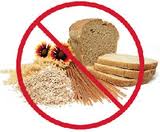Happy Belated New Year! After the holiday season of over-indulging passed, it became the perfect time for New Year’s resolutions focusing on healthy eating and exercise. A chance to set out and accomplish goals we’ve always talked about but maybe gave up on doing in 2011. Not this year!!

Don’ts

- This sets you for to becoming deficient in certain nutrients, as each food group contains their own variety of essential nutrients to our health. Nutrient deficiencies can lead to illness, fatigue, and higher risk of disease.
– Restrict your caloric intake to the point that you feel energy deprived and tired.
- Although you may lose weight quickly, a lot of it will be loss of muscle mass – leading to a loss of strength and endurance. It is also not sustainable in the long run, so you’re likely to put the weight back on as quickly as you lost it.
– Bite off more than you can chew.
- Saying no to all the foods you love will likely lead to binge eating when they’re next available to you. Setting your goals too high can be unrealistic and lead to disappointment.
Do’s
– Set SMART goals for your resolutions – Specific, Measurable, Attainable, Realistic, Timely.
- S – What exactly is your goal, M – measure your progress to stay on track, A – make that goal achievable by doing all the necessary steps that will bring you closer to it, R – ensure you’re willing and able to achieve the goal, T- set a timeline for your goal.
- Saying you will continue to eat healthy is great. Saying you will start to add exercise into that equation, or develop certain aspects of your fitness that you feel you could improve on, is even better.
– Make health your top priority.
- If you suffer from a disease, illness or specific condition – take a step to gain more control over it through lifestyle changes. Whether you want to lower your risk of cancer because it’s highly prevalent in your family, decrease your symptoms of IBS, lower your blood pressure / cholesterol, or pinpoint specific food allergies… it is possible to make changes to your diet and lifestyle to do so.
– Never sacrifice your health for changes in body composition.
- Whether you’re trying to gain muscle or lose weight, be sure you’re doing it in a healthy and sustainable way. Avoid the use of supplements or “fad diets” as a quick fix. Make changes that you can sustain for the long run – slow and steady wins the race!


